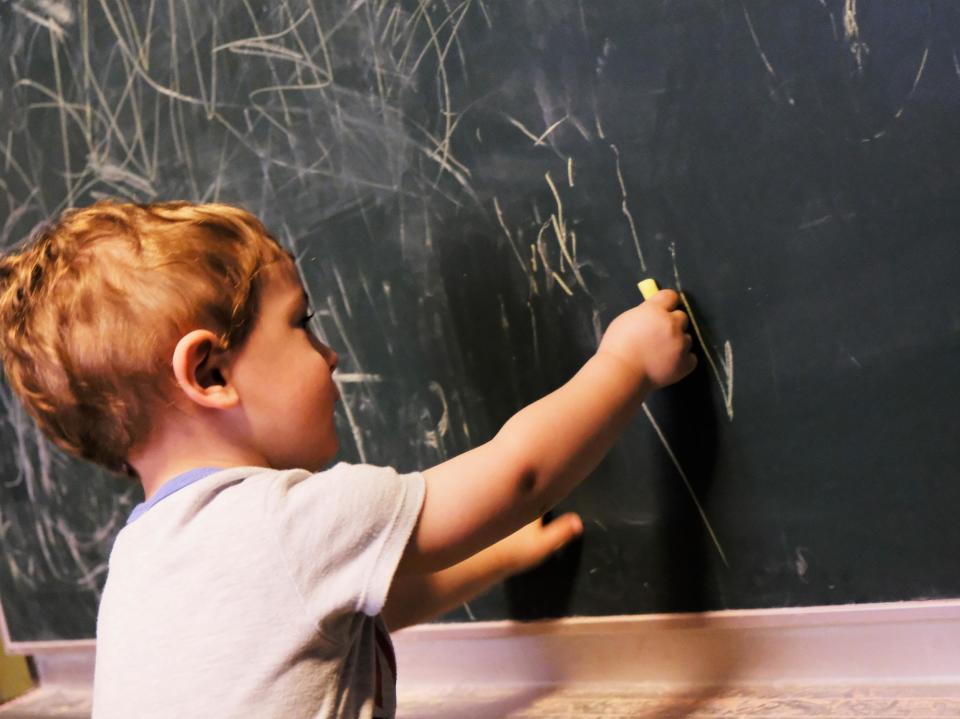My son with ADHD relies on extra support in school. That isn't a 'burden' on neurotypical pupils

I saw the headline and felt sick. “Pupils lose out as £400m schools funding diverted to special needs.”
My 7-year-old son has a diagnosis of ADHD and needs additional support at school, and this type of article only serves to further the division between parents of children with additional needs and those without. It adds to the extensive challenges we face and increases the already deeply felt isolation. The headline has since been changed on that article, but the bad taste it left has not.
Our primary school made two teaching assistants redundant due to budget cuts. I have parents in the playground asking me how my son’s one to one support is funded; I get the impression they are worried he is taking resources away from their child.
He may not have needed such support if someone had helped us sooner. It has taken five years to get a diagnosis for my son.
At three years old, I noticed that my son behaved differently to his older brother. His energy levels were very high, and he was hyperactive. Professionals put it down to him being a “typical boy”.
I was called into my son’s nursery and then his school on a daily basis. After a year’s wait to see a consultant, we were told that our son might have ADHD, but unless we wanted to give him drugs, we should get him into sport. It has taken four years since that consultant’s dismissal, and countless hours of chasing people to get my son diagnosed.
This week, we finally saw the team at CAMHS and got his diagnosis of ADHD. All they can offer is medication and a suggestion to seek help from the charity MIND. Now we face another wait for his autism diagnosis to be confirmed from a different department.
I don’t know where to start when it comes to funding issues. Hours of my time have been wasted, and doctors and early help providers can offer little resources due to a lack of money. Parents and teachers are offered little help or support until diagnosis, then they have to figure out how to handle children who are clearly struggling.
While we have been waiting for a diagnosis, my son was punished at school for his behaviour, causing his self-esteem to drop to an all-time low. He was punished for not being able to sit down in class, labelled a naughty child by several teachers and parents, and he has taken it badly.
Help from the hospital has been patchy, with people occasionally dispatched to check up on us. One lady watched my son for half an hour and concluded that he had attachment disorder caused by neglect as a child. Can you imagine hearing that as a dedicated parent? It is simply unforgiveable, untrue and has caused irreparable damage to my own mental health.
The EHCP (Education Health and Care Plan) is quite simply a description of what is required for that child to function, as well as an instruction manual for teachers in an educational setting. That is, if the children are able to access education. Without an EHCP, life is almost unbearable for these children and their families. Misunderstood and judged, they are bullied, excluded and dismissed.
Our EHCP application was immediately rejected because my son’s needs “aren’t severe enough”, and we were advised to appeal. This is the norm. If you are lucky enough to get through the appeals process at a tribunal, then awarded this EHCP “golden ticket”, as it is sometimes described, your next fight is to ensure that school implements the EHCP plan – this frequently doesn’t happen.
Despite our long wait and our struggle, we are one of the lucky families. It has been stressful, but I have never backed down and instead I’ve pushed to be heard.
By writing an article suggesting that SEN pupils are fleecing the neurotypical educational pot is discriminatory against those in dire need. It insinuates that often vulnerable children are viewed as inferior to those who have no additional needs.
Children with special needs are not sub humans. They are super humans, dealing with crippling anxiety daily in a world that neither understands them nor shows limited signs of wishing to do so. Our journey has not been plain sailing and neither will it be so in the future. I just hope the future will bring less suspicion and resentment from parents and people who are supposed to be on our side.

 Yahoo News
Yahoo News 